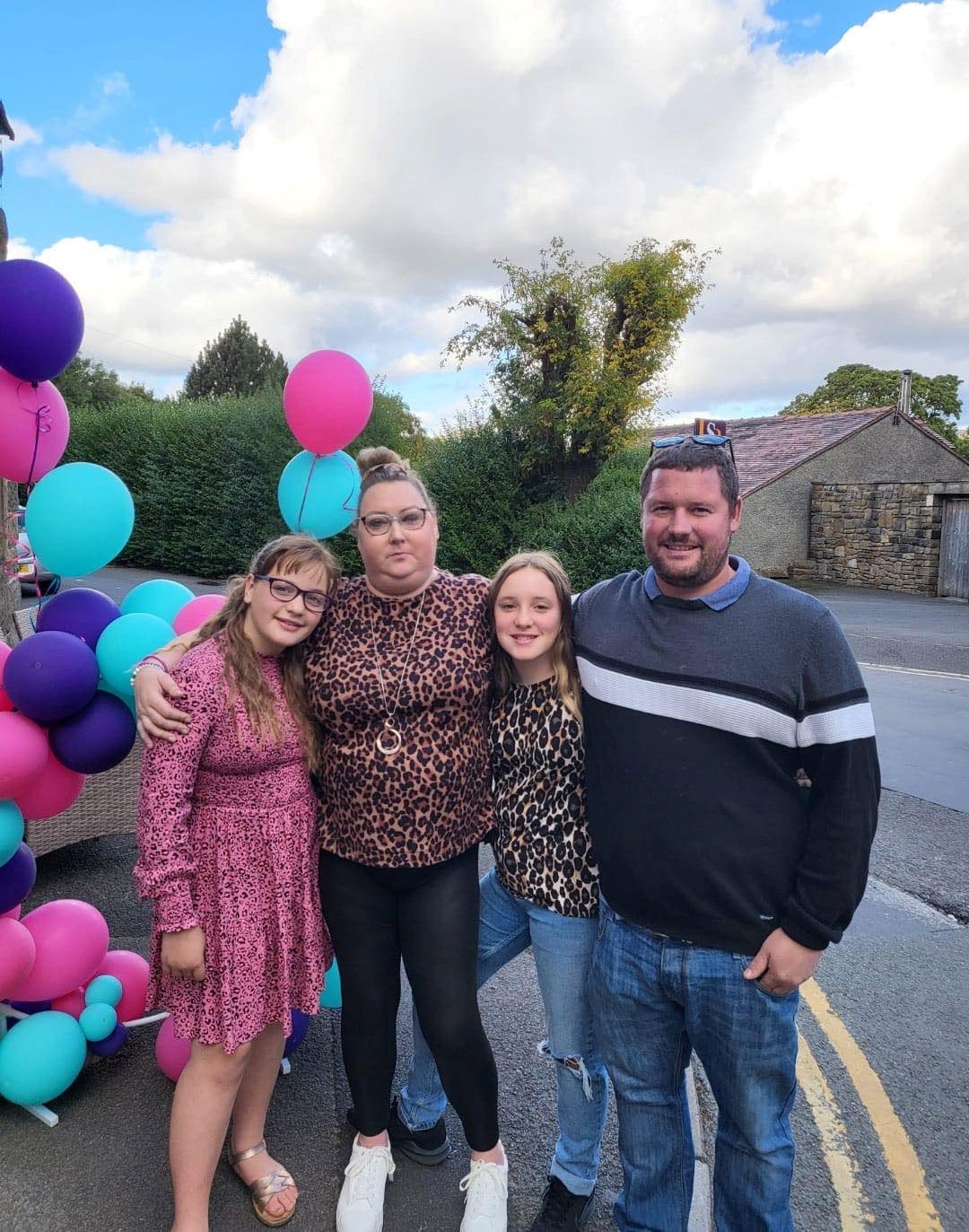Mother with terminal breast cancer reveals little-known symptom everyone should know
Brave Gemma Ellis, 39, was given a terminal diagnosis in 2017 without ever finding the kind of lump that is typical for advanced breast cancer patients
Your support helps us to tell the story
From reproductive rights to climate change to Big Tech, The Independent is on the ground when the story is developing. Whether it's investigating the financials of Elon Musk's pro-Trump PAC or producing our latest documentary, 'The A Word', which shines a light on the American women fighting for reproductive rights, we know how important it is to parse out the facts from the messaging.
At such a critical moment in US history, we need reporters on the ground. Your donation allows us to keep sending journalists to speak to both sides of the story.
The Independent is trusted by Americans across the entire political spectrum. And unlike many other quality news outlets, we choose not to lock Americans out of our reporting and analysis with paywalls. We believe quality journalism should be available to everyone, paid for by those who can afford it.
Your support makes all the difference.A cancer-stricken mother given two years to live is still fighting on five years later - and is now running a busy shop.
Brave Gemma Ellis, 39, was given a terminal diagnosis in 2017, leading her to quit her NHS job.
But five years later, she is still alive and now runs a charity shop that supports other people with stage four breast cancer.
The mother-of-two, from Manchester, said: “I don’t know how I’m doing this. The shop is really busy and I just love it.
“The first full day I did made me feel like a normal human being. It was lovely to get up, load the dishwasher and go to work.
“I felt like a proper working mum again, I’d missed that so much. I never imagined I would do this, I’m really, really happy!”
Gemma was diagnosed with a rare form of breast cancer in February 2017 while working as a discharge co-ordinator for the NHS.
She said: “Inflammatory breast cancer is very rare. You don’t get a lump. I had pain, rash and redness all over the top of my left breast.
“Nobody knew what it was and it doesn’t show up on mammograms. I had months of going back and forth to doctors before I had an MRI and was diagnosed.”
Gemma then went through six rounds of chemo, surgery, and 15 rounds of radiotherapy - and was back at her desk again that September.
But incurable lesions were then found by a CT scan on her lungs and spine in April 2018.
Shocked by the lack of resources available, Gemma decided to help others with terminal cancer.
She, husband Ben, 33, and their daughters - Ruby, 12, and Scarlett, 10 - started sending out packages containing comforting products and pages of information.
Gemma also created a website, a social media support group and started her first GoFundMe. Locals began delivering items for the packs to her home.
She was spending so much time sending out support packs that she quit her NHS role in 2019.

Her organisation then became a charity in July 2022. Gemma was mentioned in Parliament and even received a letter from then prime minister Boris Jonson.
Her fundraising has been such a success she founded a research foundation and opened her charity shop on October 1 near her home in Manchester.
She said: “It’s been pretty mad, but I’ve always been the type to just get up and do something if I want to.
“Stage four means treatable but not curable - you know then that you’re not getting away from it.
“I was given one to two years but have survived five. It was very very lonely at first, there was no support out there.
“When you’re diagnosed with primary cancer you’re given all sorts of booklets about treatment, support groups, and recovery.
“When it’s secondary it was very different, there was very little information.
“I needed that support group, and positive stories. I needed to hear about people who were still living normal lives and how long they had survived.
“There was nothing to help my family or to show me how to tell my children.
“It’s a one-day-at-a-time existence. You can get friendly with someone and then lose them after a few months, while others carry on for 13 years.
It’s dependent on the kind of cancer and treatment and different people respond in different ways, but there’s no way to predict it. Really you’ve just got to crack on.”
Gemma’s secondary lesions are now in her brain as well as her spine and both lungs.
She talked frankly with her daughters about her illness, and they even held wig parties when she began losing her hair.
Gemma has run her organisation despite her own three-weekly chemo, and even brain surgery.
Because of a post-surgery infection she has a 20cm hole in her skull, just behind her forehead, but that doesn’t stop her.
To others with terminal cancer Gemma said: “Don’t panic. Let people help you, let them in and take everything you are offered. Look for positive stories.”




Join our commenting forum
Join thought-provoking conversations, follow other Independent readers and see their replies
Comments